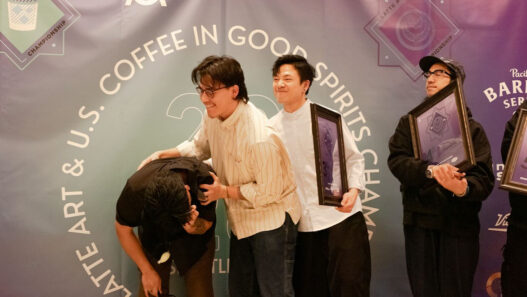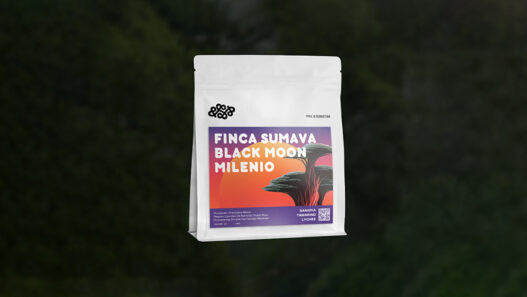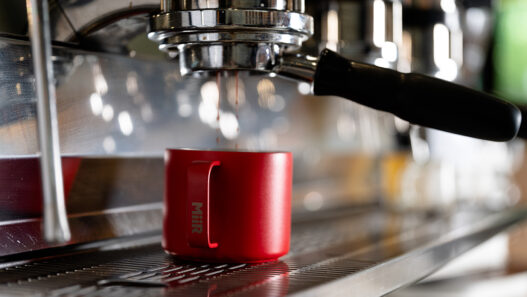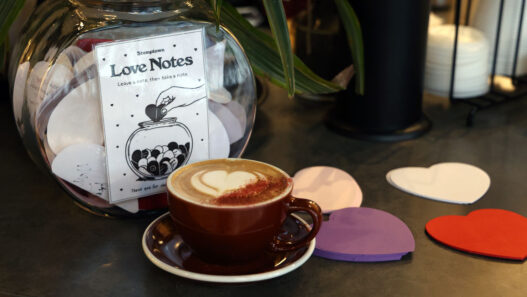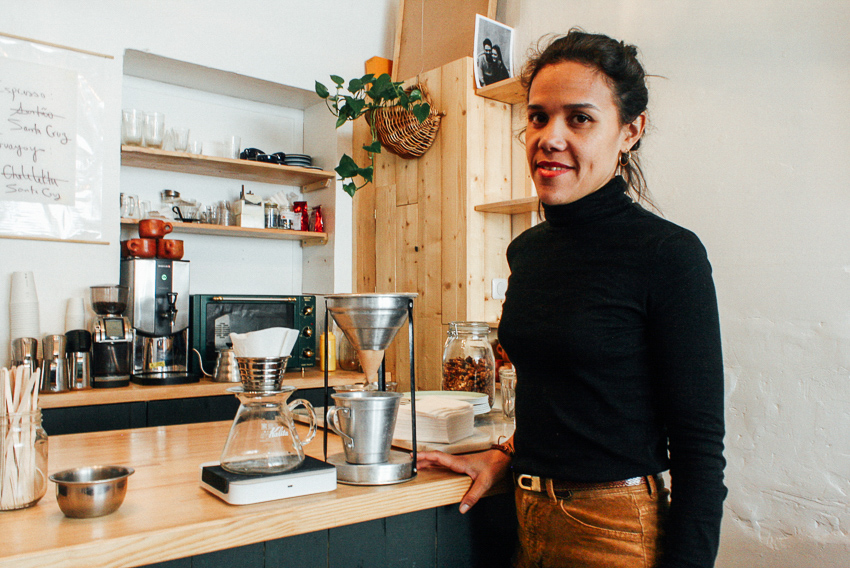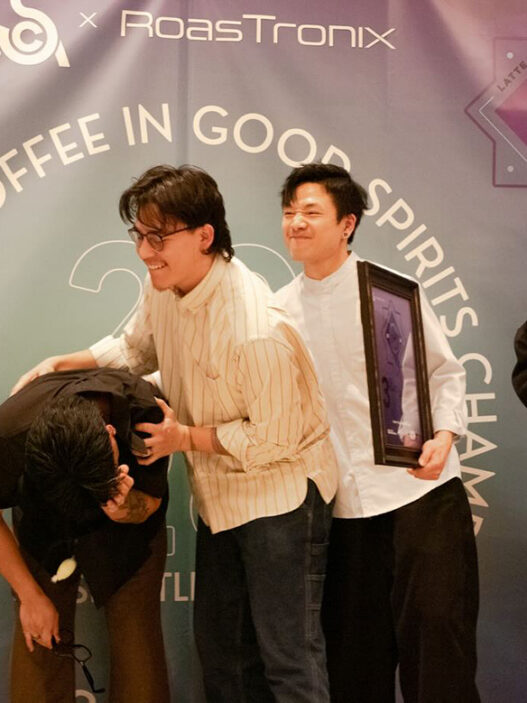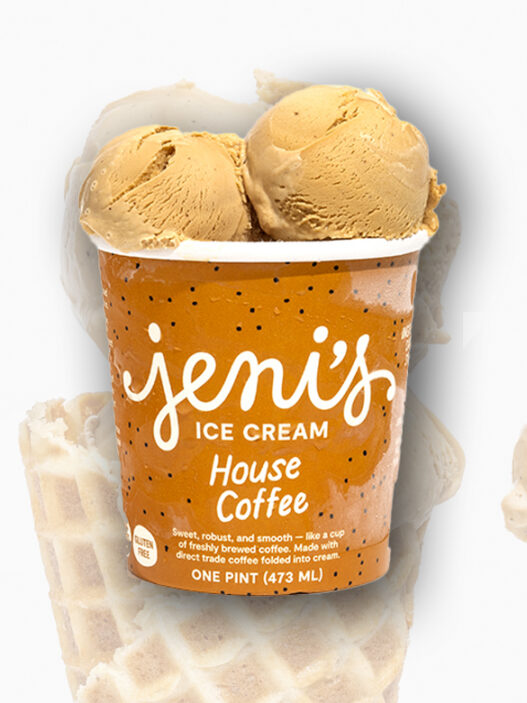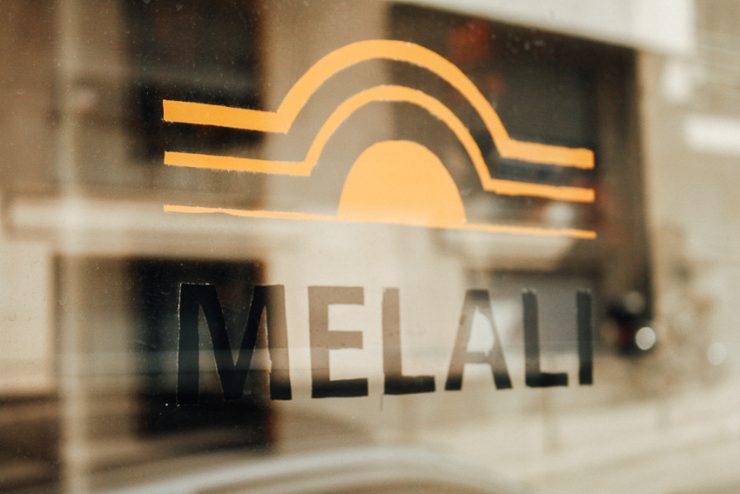
Melali is an Indonesian word that translates to something like “a leisurely stroll.” That’s the feeling Victoria and Josselin Gobé, fans of a surfing movie also by that name, wanted to create at their coffee shop in Montmartre. Melali Coffee Riders, opened just under a year ago, is more Caracas than Copenhagen: wicker loungers and tropical patterns rather than wooden chairs and geometric prints. Locals have taken to Melali’s great espresso, but the Gobés’ ongoing project is to convince the average French coffee drinker that filter can be just as good.
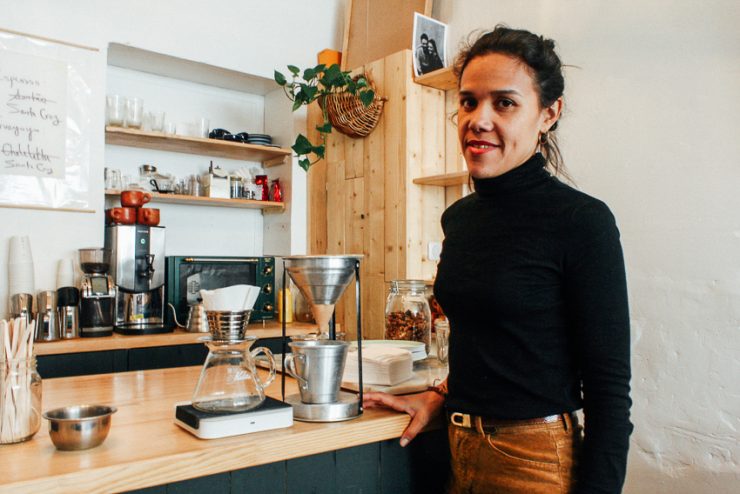
At Melali, filter coffee is called guayoyo, after the traditional Venezuelan coffee beverage that Josselin recalls drinking with his in-laws in South America. “Call it filter, a pour-over, guayoyo, it’s the same basic idea,” he says. Traditional guayoyo is prepared using a gauzy filter that resembles a net attached to a metal ring with a short handle. The result is a mild, watery coffee that even kids are allowed to drink, usually with a splash of milk. Melali Coffee Riders uses a Kalita Wave to achieve a stronger version and serves it in a clay mug with a comforting heft.
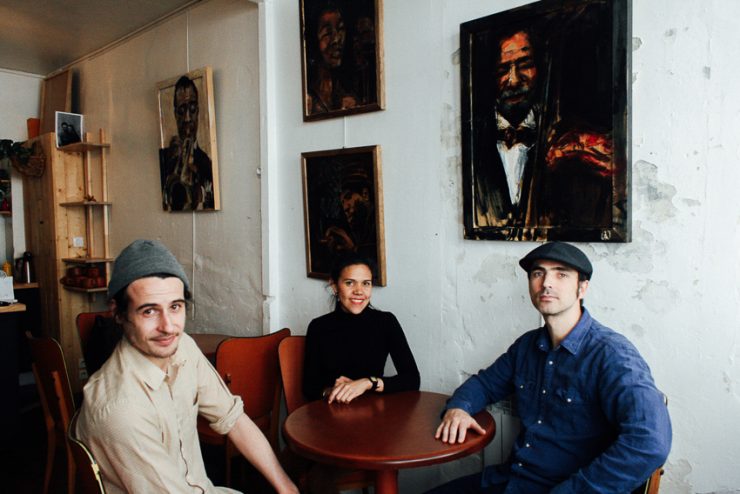
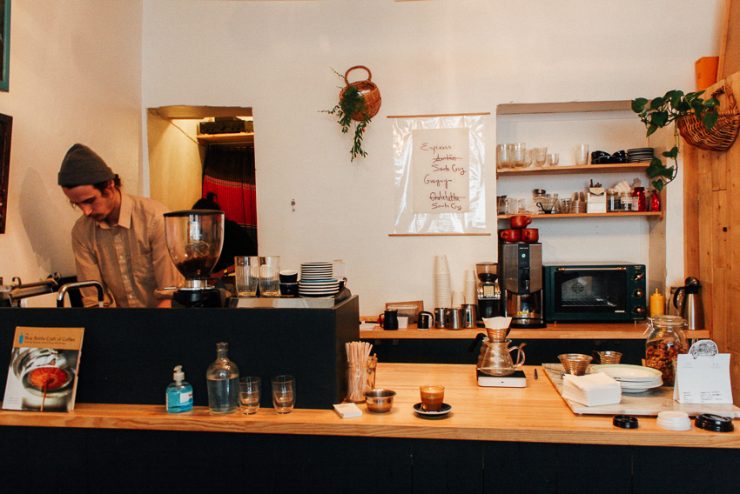
Here in France, filter coffee is disparagingly referred to as jus de chaussettes (sock juice). Josselin Gobé’s hope is that quality roasts by Belleville Brûlerie—which is also fighting to give filter coffee a better name—and skillful preparation by well-trained baristas can change that attitude. In fact, Josselin so believes in filter coffee that he’d like to see Melali Coffee Riders reach the point where it supplies local businesses with thermoses of the stuff. The Gobés couldn’t have chosen a better part of Paris in which to start their filter revolution.
The pocket of the 18th arrondissement where Melali Coffee Riders is perched has a large population of creative professionals: La Fémis, the national film school, is just around the corner, and the cafe’s courtyard gives out onto artist studios. “The neighborhood is full of small businesses, people who work in photography or cinema. These are people who work hard and work late,” says Josselin. Thermoses of Melali-style guayoyo would certainly give them fuel into the wee hours.
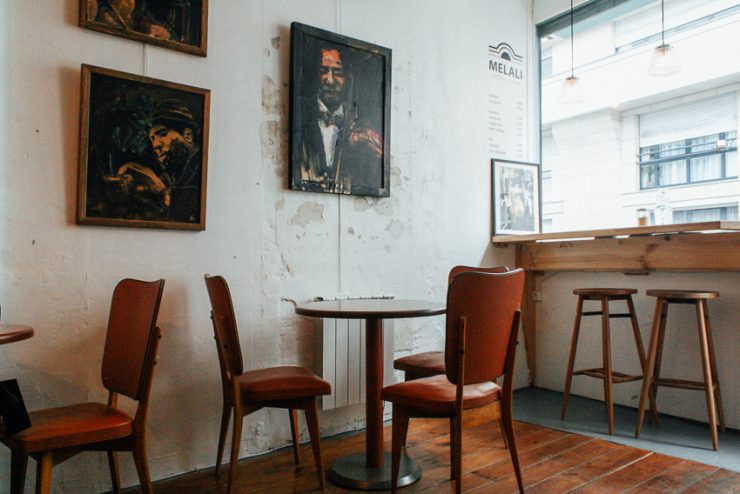
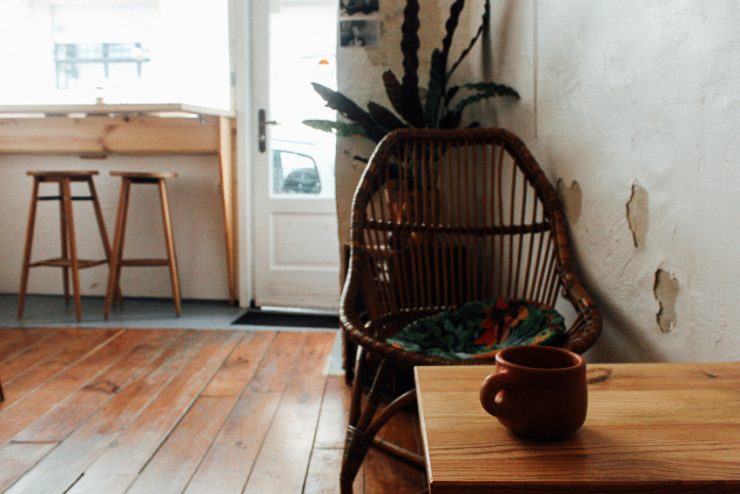
Josselin also hopes that people will come for the high-quality coffee, but possibly end up starting a conversation or sharing a leisurely moment with friends or strangers. “I’m tired of coffee shops where people just talk about the coffee,” he says. “I’d like people to be able to come down here and have discussions over coffee, to be able to show off their work,” he says, referring to the revolving art exhibitions that enliven the white cafe walls. At the moment, they’re hung with oil portraits of jazz musicians by French artist Isabelle Terestchenko; last month, customers could sip a guayoyo or hot chocolate and contemplate a series of surfing-themed art. “It’s not a coffee laboratory for geeks,” he emphasizes.
It’s true that you may not find the baristas weighing out every shot—but you won’t find extreme roasts that require meticulous handling either. Melali goals are laid-back here as well, choosing roasts with notes of chocolate and caramel that work well for its staple espresso, reflecting a South American palate. The idea is to drink coffee, not intellectualize it. “We like coffee, but if we make a good cup, we’re happy. It’s not a big deal if it’s not ‘the best,’ ” says Josselin. That said, the Gobés did invest in a La Marzocco GS3 and use a revolving selection of Belleville Brûlerie roasts (including a Yirgacheffe Chelelektu Natural that’s bursting with blueberry flavor); barista Leigh Gable did a stint with Jamie McCormick at Abraço in New York.
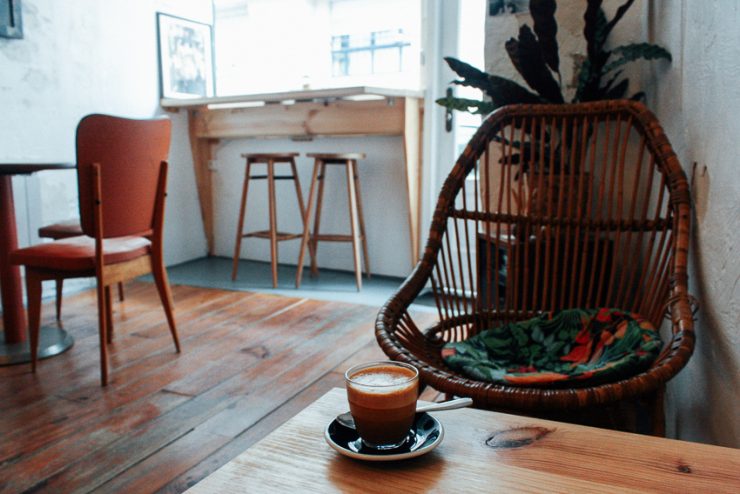
Melali Coffee Riders has also hosted several pop-up boutiques since opening, transforming the cafe into a showcase for local artisans and stoking Josselin’s dreams for the shop. “We want to stay a cafe, but we’re definitely going to grow into something more,” he says. “Eventually, we [want to] be a boutique where you can find gifts related to the world of coffee, but also things we’ve discovered here and there,” he says. An expanded menu is in the works for May with cakes, cookies, and homemade granola, but also two types of savory empanadas. (The Gobés also run Bululu, a Venezuelan arepera a few doors down). Still, the menu will remain simple—for all of the Gobés varied interests, they plan to keep the focus on good coffee.
As Josselin puts it: “Ultimately, our goal is to see all those people on their way to the Lamarck metro [up the hill from the cafe] stop in for a coffee, then carry a bit of that perfume along with them as they continue on their way.”
Kate Robinson (@KateOnTheLoose) is a freelance journalist based in Paris. Read more Kate Robinson on Sprudge.




